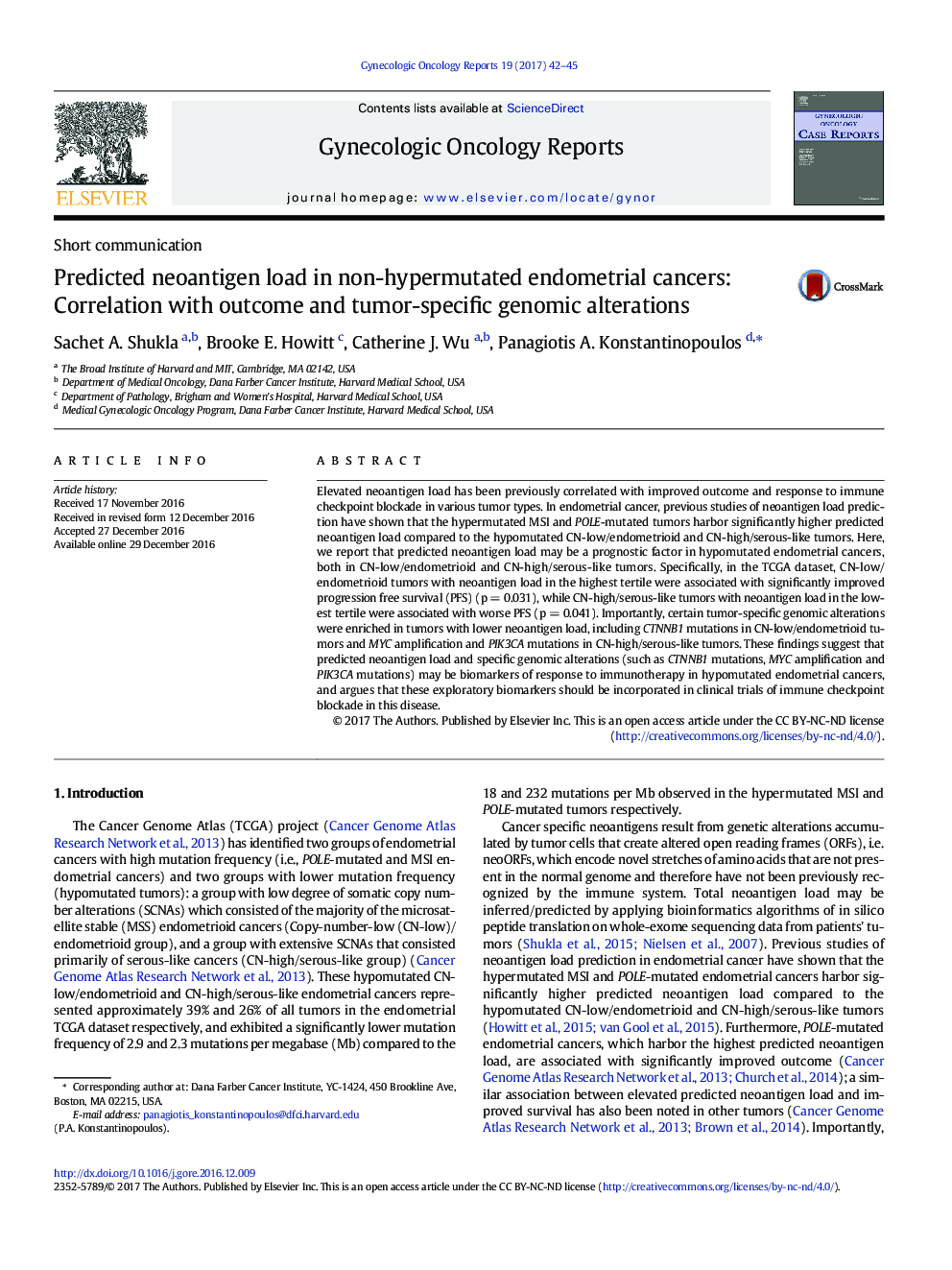| Article ID | Journal | Published Year | Pages | File Type |
|---|---|---|---|---|
| 5695500 | Gynecologic Oncology Reports | 2017 | 4 Pages |
Abstract
Elevated neoantigen load has been previously correlated with improved outcome and response to immune checkpoint blockade in various tumor types. In endometrial cancer, previous studies of neoantigen load prediction have shown that the hypermutated MSI and POLE-mutated tumors harbor significantly higher predicted neoantigen load compared to the hypomutated CN-low/endometrioid and CN-high/serous-like tumors. Here, we report that predicted neoantigen load may be a prognostic factor in hypomutated endometrial cancers, both in CN-low/endometrioid and CN-high/serous-like tumors. Specifically, in the TCGA dataset, CN-low/endometrioid tumors with neoantigen load in the highest tertile were associated with significantly improved progression free survival (PFS) (p = 0.031), while CN-high/serous-like tumors with neoantigen load in the lowest tertile were associated with worse PFS (p = 0.041). Importantly, certain tumor-specific genomic alterations were enriched in tumors with lower neoantigen load, including CTNNB1 mutations in CN-low/endometrioid tumors and MYC amplification and PIK3CA mutations in CN-high/serous-like tumors. These findings suggest that predicted neoantigen load and specific genomic alterations (such as CTNNB1 mutations, MYC amplification and PIK3CA mutations) may be biomarkers of response to immunotherapy in hypomutated endometrial cancers, and argues that these exploratory biomarkers should be incorporated in clinical trials of immune checkpoint blockade in this disease.
Related Topics
Health Sciences
Medicine and Dentistry
Obstetrics, Gynecology and Women's Health
Authors
Sachet A. Shukla, Brooke E. Howitt, Catherine J. Wu, Panagiotis A. Konstantinopoulos,
